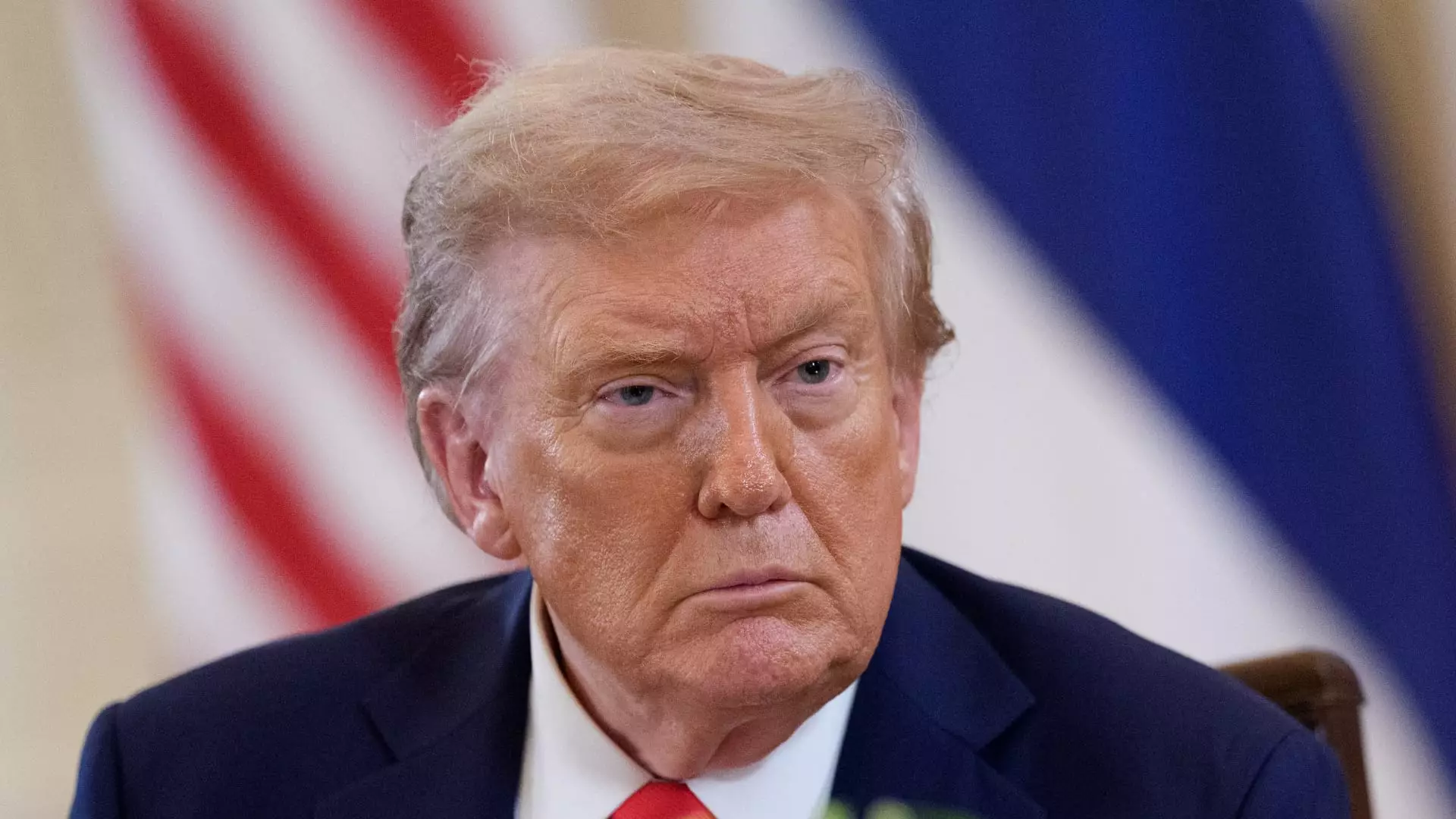Amid the tumult of American politics, one of the most overlooked yet alarming developments is the way Donald Trump, during his presidency, engaged in a staggering number of bond transactions worth millions. While the media fixates on policy debates and partisan skirmishes, few center-leaning liberals critically examine what this financial behavior signifies. These investments, made amid a tumultuous political landscape, raise uncomfortable questions about potential conflicts of interest and the integrity of the office. Instead of dismissing these actions as mere personal financial management, we must recognize them as emblematic of a broader tendency among the wealthy elite to leverage political power for personal gain—an erosion of the democratic ideal that leaders should serve public interests over private wealth.
Financial Strategies as Power Dynamics
Trump’s multi-million dollar bond-buying spree, documented through extensive filings, reveals a calculated strategy to embed himself within the fabric of the American economy. By purchasing debt issued by local governments, utility districts, and well-established corporations, he effectively becomes a creditor to the very institutions that are supposed to serve the public good. This blurs the line between public service and private profit, a trend that feeds into a narrative of plutocratic dominance. The fact that these transactions involve entities such as hospitals, school boards, and water districts underscores not only a financial maneuver but a subtle assertion of influence over local and regional institutions. Such investments give the impression that Trump’s financial interests are intertwined with the stability and borrowing power of government entities, raising alarms over whether policy decisions are swayed to favor creditors over constituents.
The Illusion of Legitimacy and Conflicts of Interest
Critics argue that the sheer volume and scope of Trump’s bond acquisitions—over 690 transactions totaling at least $100 million—point to a pattern that conflicts with the supposed ethics of public office. Federal regulations shield the president from some conflicts of interest, but this loophole is exploited as a form of institutionalized opacity. While Trump did not explicitly declare his bond holdings as personal assets, these transactions reveal a corporate-financial infrastructure operating under the guise of official privilege. The investments in major companies like T-Mobile, UnitedHealth, and Facebook—especially when these firms have been subject to policies or scrutiny during his term—suggest a potential web of influence that can subtly shape policymaking or diplomatic relations.
The Democratic Dilemma of Wealth and Power
A central concern lies in the broader implications of wealth accumulation in political leadership. Trump’s net worth, publicly reported at $5.5 billion, escalates the conversation about the role of immense private fortunes in democratic governance. While some might argue that wealthy individuals have the right to manage their assets as they see fit, the asymmetry becomes problematic when those assets could serve as leverage over public policy. The disparity between the average American and the ultra-rich is often justified in terms of merit or opportunity; however, the reality becomes troubling when such wealth allows influence that extends beyond the traditional bounds of business—into the realm of governance. It’s a paradox: the very financial success that hints at the American Dream can undermine the principles of fair representation and accountability if left unchecked.
Why Center-Left Voices Must Take a Stand
For center-leaning liberals committed to fairness, transparency, and the integrity of democratic institutions, these revelations should serve as a wake-up call. It’s not enough to dismiss these financial dealings as personal or legal gray areas. Instead, they exemplify systemic issues: the entrenchment of wealth in the corridors of power and the erosion of public trust. It calls for a reevaluation of campaign finance laws, conflict of interest regulations, and the accountability standards expected of public officials. If we are serious about restoring faith in government, we must push for stricter transparency measures and policies that prevent individuals from capitalizing on their political positions for private financial gain.
By scrutinizing the financial activities of political leaders, especially those as wealthy as Trump, center-liberal advocates, and reformers must challenge the myth that such investments are benign or incidental. They symbolize a deeper issue—how the confluence of wealth and power threatens the very foundations of democracy. It’s a stark reminder that American governments should prioritize the collective good, not serve as playgrounds for the ultra-rich to amass even more wealth under the pretense of public service.
—
This critique underscores the necessity for a vigilant, reform-minded approach to political finance—an approach that prioritizes democratic integrity over individual wealth accumulation. The system’s flaws become glaring when leaders can, openly or covertly, influence institutions and policies through shrewd financial maneuvers. Center-left voices must elevate these concerns beyond partisan squabbles and treat them as fundamental to safeguarding American democracy from the corrosive effects of unchecked wealth and influence.


Leave a Reply